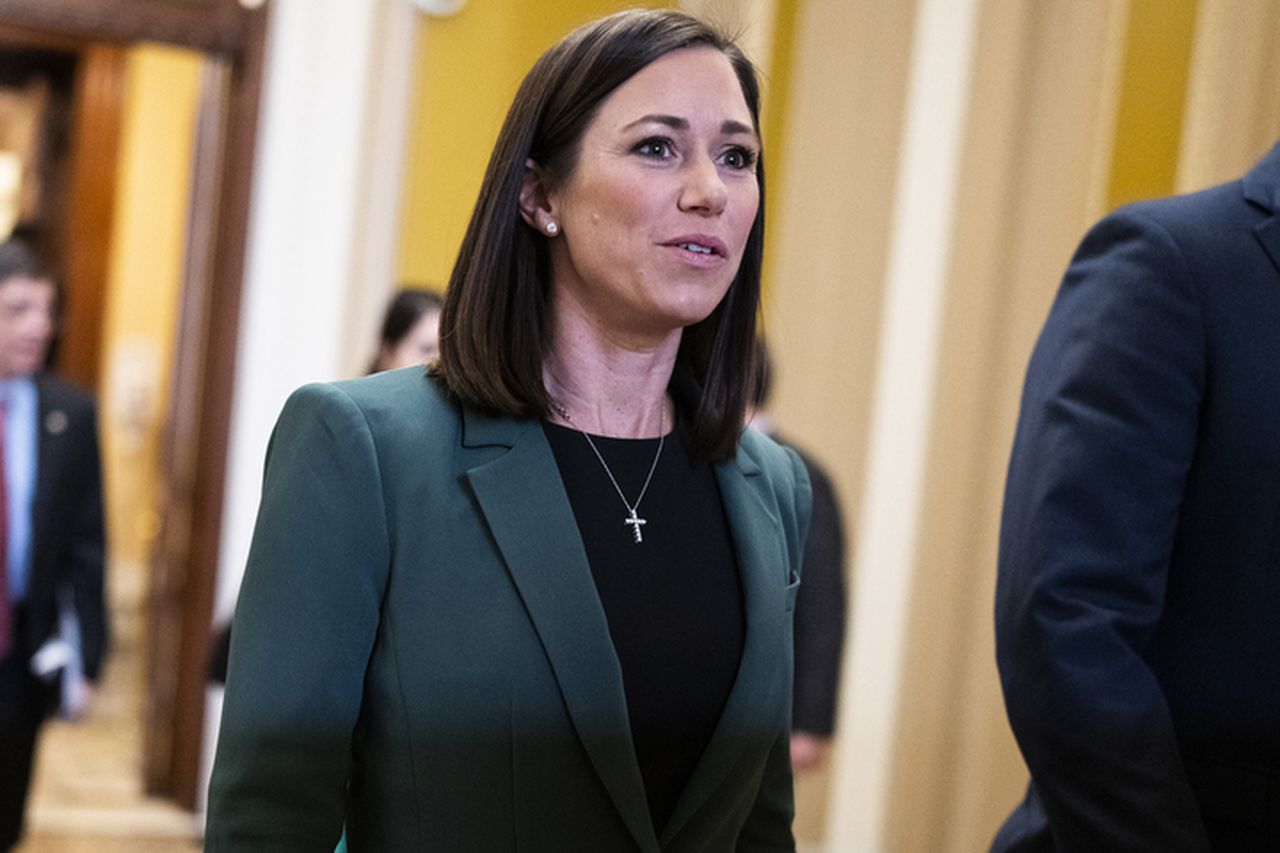Alabama Sen. Katie Britt: Social media needs to be cleaned up for teens
Social media algorithms, designed to capture teenage eyeballs and drive up company profits, are a danger to children and need to be brought under control, according to a bipartisan group of U.S. senators that includes Alabama’s Katie Britt.
Britt spoke at an announcement of a Senate bill Wednesday in Washington designed to toughen minimum age requirements to create social media accounts while calling for algorithms that target young users to be eliminated.
“I see the effects of this every single day when I talk to my friends and talk about what they’re dealing with with their children, the realities and the negative effects that social media can bring into one’s life and into one’s home, particularly as they learn to grow as they’re trying to learn their way, have become very real,” said Britt, whose children and 14 and 13 years old.
The specifics of the bill, named The Protecting Kids on Social Media Act, would set a minimum age of 13 to create accounts and would require parental consent for users to the age of 17. The bill would also prevent the use of algorithms to recommend content to users up to the age of 18.
Britt joined Sens. Tom Cotton, R-Arkansas, Chris Murphy, D-Connecticut, and Brian Schatz, D-Hawaii, at the announcement. All four senators have school-age children.
The senators said social media played an influencing role in emotional struggles some teenagers face. The senators noted at the announcement that the CDC’s Youth Risk Behavior survey found in 2021 that 57 percent of high school girls and 29 percent of high school boys felt persistently sad or hopeless.
In a press release, the senators said between 2011 and 2019, the rate of teen depression doubled as social media rose in popularity. From 2019 to 2021, overall screen use among teens and tweens (ages 8 to 12) increased by 17 percent, with tweens using screens for 5½ hours per day and teens using screens for 8½ hours. Research shows that teenagers who spend more than five hours a day on social media are twice as likely to be depressed.
“This bill steps out and does what we need to do,” Britt said. “It allows parents to be back a part of the conversation. And it also makes sure that big tech cannot prey on the emotions of our children.”
The senators said it is part of a social media company’s business model to keep the eyes of young users focused on the apps. Cotton said surveys have found some teens spend nine hours a day on social media. And the algorithms are a fundamental, if unrealized, part of that attraction – constantly feeding certain content to users and often with negative effects, the senators said.
“The social media companies have had plenty of opportunity to do the right thing,” Murphy said. “And to make sure that the content they are delivering to our kids is healthy. They have failed to deliver.”
A first step, Cotton said, is toughening the age verification process.
“We do age verification routinely,” he said. “So it’s simply not a serious argument that we cannot do online age verification for social media companies just like we do in so many other settings in the digital world.”
The bills described the bill as regulator in nature and that enforcement would come from the Federal Trade Commission or state attorneys general.
Pointing to the wide-ranging ideological views of the four senators, Schatz said it underscored the importance of making social media a safer place for teens.
“I can’t, off the top of my head, come up with that many other bills that we would all announce together,” Schatz said. “And I think that shows the power of this issue.”
